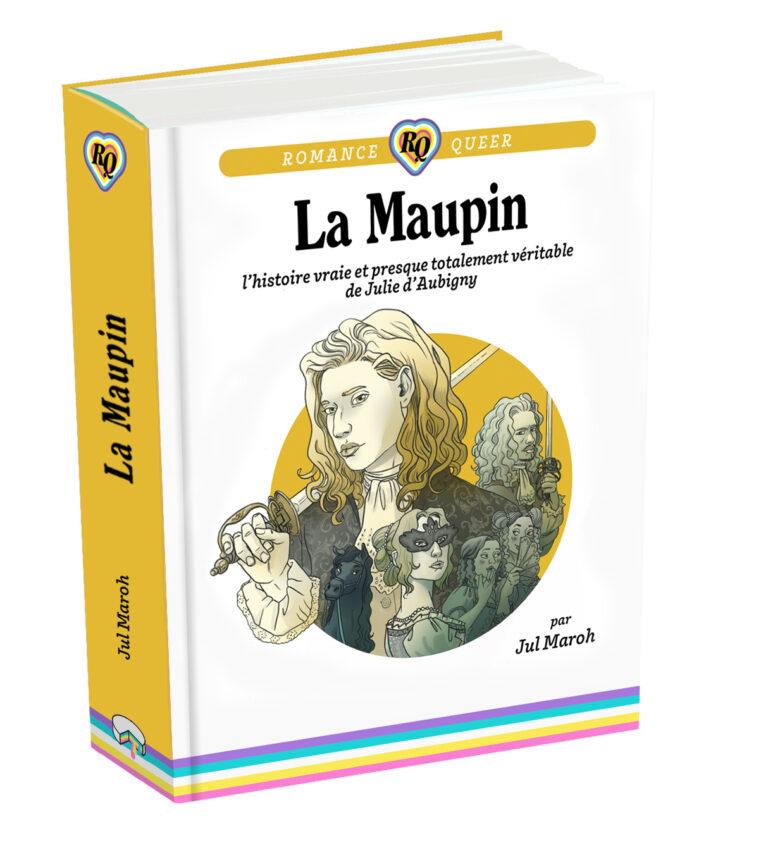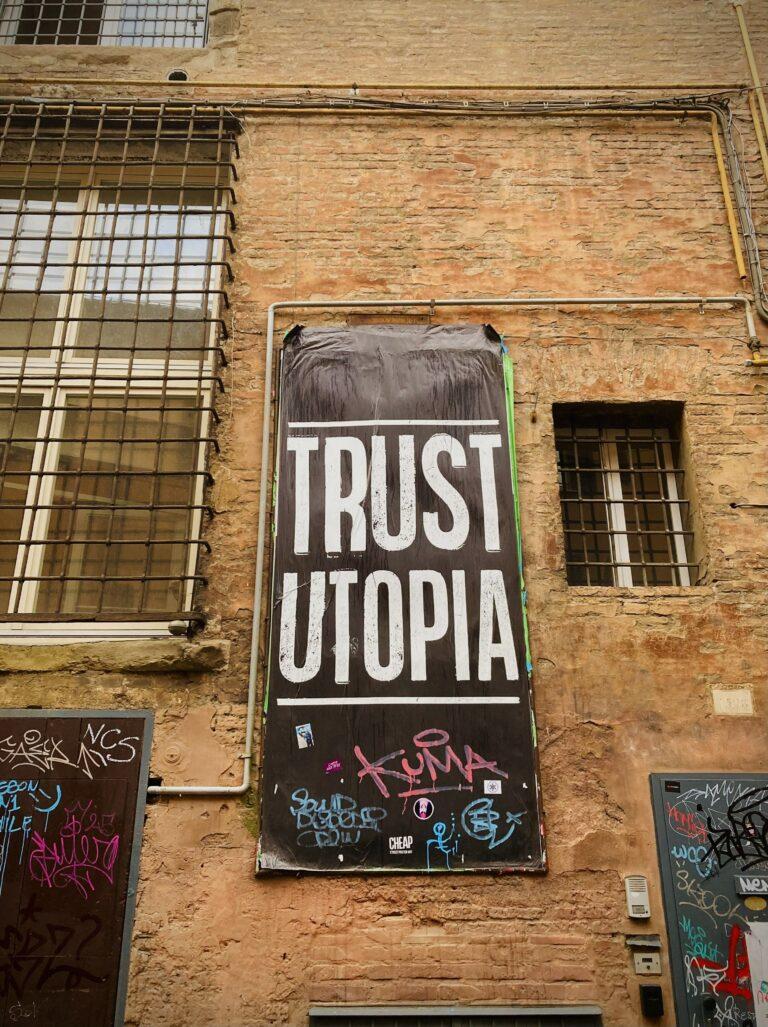Dans mes rencontres, que ce soit à une teuf ou un déplacement pro, il arrive parfois que des gens aient une vision bohème de ma condition d’artiste, projection allant souvent de pair avec la fameuse question « Et tu en vis ? ». Ils se rendent compte très vite qu’ils viennent de prononcer le mot de passe qui ouvre le sac de Mary Poppins, d’où peuvent sortir les plus gros éléphants. Le genre d’éléphants qui occupent une pièce du ministère de la Culture, où des personnes font fi de ne pas les voir. « Comment ça, vous n’avez pas de statut, ni de salaire minimum ? Les heures comptées, non plus ? Pas de congés payés ? Pas de droit au chômage ? Et vos arrêts maladie…? L’I.A. qui vole vos productions en toute impunité et vous remplace dans vos jobs ? »
« Donc tu en vis mais COMMENT tu en vis ? »
Attends darling, Mary Poppins n’a pas fini.
Il y a un autre éléphant – particulièrement volumineux et installé – dont la présence dans le monde culturel et médiatique commence à être discutée à bâtons rompus, et que j’évoquais dans ma newsletter du 15 septembre. Je crois que si ce domino-là bouge, tous les autres peuvent tomber.
Cet éléphant c’est l’empire Bolloré.
On sait que l’empire Bolloré est un projet politique réactionnaire, ultra-conservateur, d’extrême-droite assumée(1). Et quand un milliardaire a de tels projets, c’est attendu qu’il cherche à diffuser ses idées et à manipuler l’information à grande échelle, donc à occuper et transformer à son image le champ médiatique, culturel, littéraire.
Bolloré s’est emparé de la firme Hachette en 2023. Hachette c’est plus 2,8 milliards d’euros de chiffre d’affaire la même année(2). Même chose en 2024(3). Quasiment 6 milliards d’euros pour alimenter son projet d’extrême-droite juste en deux ans. Et bien que nous ayons toutes les infos au clair (le mec ne s’en cache pas, il suffit de voir ce qui se passe chez Fayard(4), on assiste à une forme de dissonance cognitive généralisée depuis deux ans : des auteurices continuent de publier au sein du groupe Hachette/Bolloré, des lecteurices qui se disent contre le fascisme continuent d’y dépenser leur argent, les éditeurices d’y travailler, et les festivals culturels bien que visés par les mesures d’austérité et de formes de censures/pressions continuent d’inviter tout ce monde.
Dans ce contexte, cette année le milieu féministe-queer-décolonial a commencé à poser une question légitime en tapant sur sa montre : what the fuck ?!
Ces remous sont arrivés jusque dans la presse généraliste, notamment via l’article Quand on est auteur de gauche, publier chez Bolloré, est-ce tromper ?(5) de Simon Blin et Adrin Frauque, dans le journal Libération du 20 septembre. Un titre racoleur, et un article qui soulève un pan du tapis mais qui à mon sens ne montre pas tout ce qu’il y a dessous, loin de là, préférant plutôt questionner les méthodes du collectif Désarmer Bolloré en y opposant des témoignages d’auteurices notables (et moi-même je suis contre toute forme de dogpilling).
Mary Poppins propose donc d’aller au fond du sac. Rappelons que le monde littéraire francophone est une industrie. Et les rouages de cette industrie, soumise aux lois du marché et à des business models, ne reposent pas QUE sur les auteurices, voire très peu. Le marché littéraire fait surtout confiance aux personnalités pour rester juteux : des politiques, des influenceurs, youtubeurs, « stars » de leur domaine etc. Ici le premier rouage ce n’est pas l’auteur, c’est l’argent. Et par là, la personne qui le dépense et alimente cette machine : le lectorat. L’article aurait pu s’intituler « Quand on est lecteur de gauche, acheter chez Bolloré est-ce tromper ? » ou plus généralement « Quand on est de gauche, donner son argent à Bolloré, est-ce tromper ? »
(Il va de soi que les actionnaires ont leur part dans cette histoire, mais la formule « actionnaires de gauche » aurait peu de crédibilité ici.)
J’ai rappelé dans mon précédent article les conditions de vie et de travail des artistes-auteurs en France, et leur détresse(6). J’ai aussi rappelé le nombre d’oppressions q’un.e artiste queer ou féministe peut subir : la précarité, l’inconsistance des lois à son endroit, l’invisibilité des minorités politiques, voire des violences. D’autant plus si iel est non-blanche et/ou handi. Et j’ai demandé : qu’en est-il de la responsabilité collective envers les artistes ?
Dans cette continuité, l’autrice Pauline Harmange pose la question d’où découle tout le reste, dans le papier du 20 septembre de Libération :
« Dans l’état actuel des choses, la majorité des livres que vous lisez sont écrits par des personnes qui ne gagnent pas un smic net par an pour les écrire. Je suis une grand défenseuse de l’édition indépendante, mais où est l’argent ? Déjà pas de ouf dans les grands groupes, mais alors pas du tout dans les petites maisons. »
L’argent est dans la poche de celleux qui achètent nos livres et qui façonnent grandement ce marché ! Fayard est un excellent exemple à ce sujet : 28% de pertes de son chiffre d’affaires par rapport à l’année précédente(7). Un million d’euros en moins, que les lecteurices ont dépensé ailleurs.
Ce que les maisons d’édition non-réactionnaires (indépendantes ou non) peuvent proposer financièrement et contractuellement aux auteurices va dépendre de leurs bénéfices, et des subventions reçues par des organismes (le CNL, la Sofia, le CNAP etc). C’est pour ça qu’il est crucial que le lectorat francophone saisisse l’importance de boycotter toute publication Hachette/Bolloré, et de soutenir en contrepartie les maisons d’éditions qui ne participent pas à alimenter la machine de l’extrême-droite. Pour chaque livre vendu, le groupe Bolloré touche plus du double que ses auteurs(8). Le lectorat PEUT et DOIT renverser l’économie en jeu, et les auteurices stars peuvent y aider aussi. Un autre témoignage dans Libération évoque qu’il serait inenvisageable pour les travailleurs (éditeurs, autrices etc) de Hachette de « partir du jour au lendemain », to « déserter ». Il ne s’agit pas de déserter l’édition, mais bien l’économie qui alimente l’extrême-droite et le fascisme. De la même manière que des médias non-réactionnaires et garants du cordon sanitaire ont été montés dans le milieu médiatique(9) lorsque les ultra-riches se sont emparés des grandes chaînes (Blast, Basta!, Ballast, Le Diplo, Médiapart, Alternatives Economiques, la Déferlante, Histoires Crépues, la liste est longue).
Je vois la dissonance cognitive de certain.e.s depuis le rachat d’Hachette par Bolloré comme une tentative de négociation de la grenouille dans l’eau chaude. Tout le monde voit sous nos yeux les ultra-riches d’extrême-droite s’emparer petit à petit du champ médiatique, culturel, littéraire. Ce n’est pas un phénomène « du jour au lendemain ». Les books bans(10) états-uniens sont la prochaine étape si l’extrême-droite l’emporte chez nous. Et avoir publié chez Hachette ne protègera aucun.e auteurice.
L’initiative du romancier Alexandre Galien est à saluer. Auteur d’un best-seller paru chez Fayard en 2019, il a décidé ce mois-ci de reverser tous les futurs droits d’auteur du dit-livre au MRAP, le mouvement contre le racisme et pour l’amitié entre les peuples(11).
Même lorsque nous sommes lié.e.s par contrat, il y a donc des moyens de lutter.
En 2016, lors de la révélation des Panama Papers, j’ai découvert avec dégoût que mon éditeur Jacques Glénat était l’un des évadés fiscaux dénoncés. Mon troisième livre au sein de cette maison devait sortir quelques mois plus tard… Bien qu’il ait fermé son offshore aux Seychelles deux ans plus tôt, « selon le PNF, cette fraude a permis la dissimulation de 9,9 millions d’euros, la perception « illégale » de 4 millions d’euros de dividendes, qui ont notamment permis à M. Glénat d’acquérir sous couvert de ces sociétés pour plus de 3,5 millions d’euros d’œuvres d’art. »(12) C’est aussi ce à quoi le succès de mon livre Blue Is The Warmest Color a participé entre 2011 et 2014, et je m’en sens profondément sali. Si j’essaie depuis un moment de monter un refuge en campagne près de Lyon pour les artistes transféministes, c’est aussi pour ce genre de raisons, et avec les fonds que ce même livre m’a apportés.
Le boycott reste un outil qui fonctionne, ce que l’on fait de notre thune est le seul langage qu’ils comprennent en face, c’est le premier rouage. Disney, Starbucks, MacDonald’s et Zara sont en train de plier face aux boycotts aux USA(13). Fayard sees the wind turning.
Des librairies indépendantes ont aussi lancé un appel de boycott contre Hachette, en en refusant de vendre les publications dans leurs magasins.(14)
La responsabilité commune de la montée de l’empire Bolloré engage tout le monde, de qui publie à qui achète, en passant par les festivals et les organismes qui décernent des prix littéraires.
Si vous lecteurices continuez d’acheter des livres publiés par l’empire Bolloré, les personnes décisionnaires du milieu littéraire continueront à négocier. Jusqu’à ce qu’elles se rendent compte, comme au journal Capital cette semaine, que personne ne sera épargné dans ce projet(15). L’édition française, qu’elle publie des talents francophones ou traduise des œuvres étrangères, regorge de maisons d’éditions et de coopératives d’auteurices qui non seulement n’ont pas de projet de destruction de nos diversités humaines, mais ont aussi des clauses de contrat d’auteur plus respectueux des créateurices. Il suffit de lire la charte du Syndicat des Editeurs Alternatifs par exemple(16). Et dans mon cas, mon dernier contrat signé stipulait que je cédais mes droits à la maison d’édition pour deux ans, renouvelables ou non, pas « jusqu’à 70 ans après la mort de l’auteur. »
Le monde médiatique et artistique a besoin du même grand mouvement citoyen que les autres champs économiques et politiques de nos vies. Mais tout faire reposer sur les épaules des auteurices c’est fantasmer une autonomie bohème ou bourgeoise de l’artiste, loin de notre réalité. Aidez les artistes-auteurices à obtenir une continuité de revenus. Interpellez vos élu.e.s en ce sens ! La proposition de loi va enfin être discutée au parlement.
Vous détenez énormément de pouvoir dans votre manière d’acheter des livres et de soutenir les artistes à leur origine. Aidez-nous à sortir de la précarité.
Mary Poppins ne trouve plus grand chose au fond du sac là tout de suite. Ça fait déjà pas mal d’éléphants dans la pièce.
« Donc tu en vis mais COMMENT tu en vis ? » J’en vis mal, avec beaucoup d’angoisse et beaucoup d’espoir à la fois. Je voudrais que demain des milliers de personnes se détournent de tous les médias et produits culturels Bolloré(17), pour soutenir activement les droits réclamés par les artistes et les initiatives culturelles indépendantes. Qu’on achète des livres qui ne financent pas l’extrême-droite, que l’économie de cette industrie se renverse pour que les artistes puissent vivre sans les « grands groupes », avec des droits sociaux à la clé, et non plus survivre. Il en va aussi de la survie des histoires que vous aimez lire, dans leur grande diversité et dans le champ des possibles qu’elles ouvrent.
N.B. : Dans le milieu, nous ne sommes pas toustes d’accord sur les méthodes de lutte (plusieurs peuvent se compléter toutefois, sans se hiérarchiser) contre la bollorisation. Nos réflexions doivent pouvoir s’articuler sans pointer des boucs-émissaires dans notre communauté. C’est ce que tente l’initiative Déborder Bolloré(free reading in French) « Déborder Bolloré est le fruit d’une discussion entre tout·es ces acteurices qui pensent nécessaire de trouver une forme d’intervention à la mesure de la menace que représentent Vincent Bolloré et consorts. De sorte qu’à la mise en compétition qui est le régime général de gouvernement, se substitue quelque chose de l’ordre de l’entraide, de la confiance et des liens. Finalement, peut-être est-ce cela « être indépendant·e » : se donner la capacité de choisir les dépendances qui nous font exister et de combattre celles qui nous tuent. »




